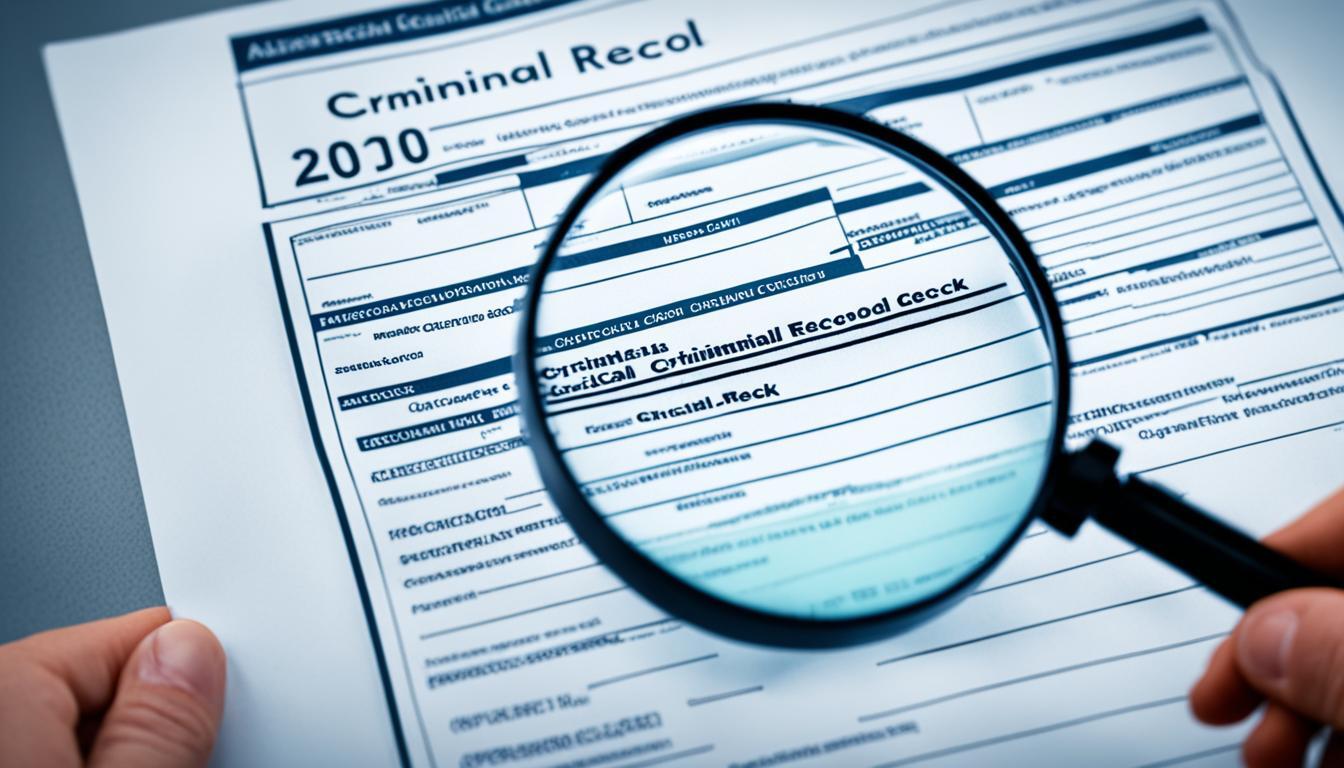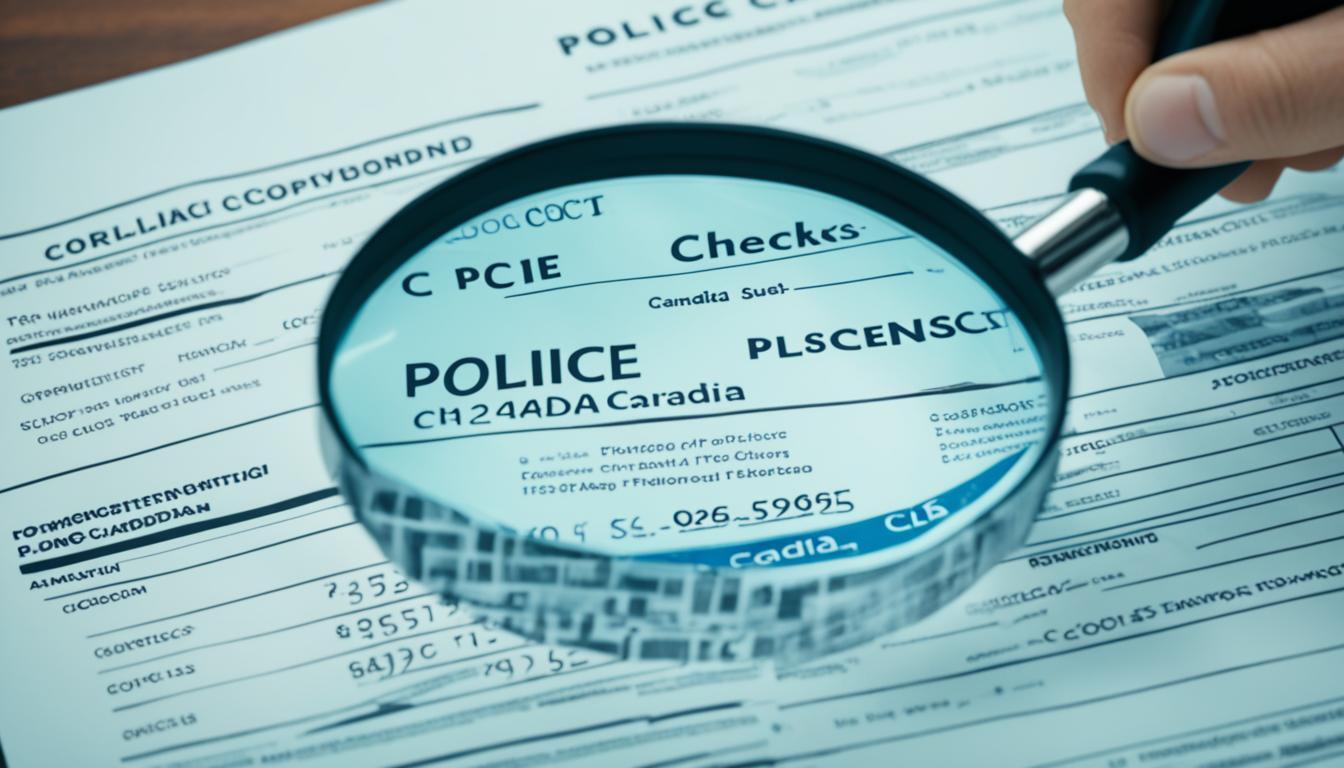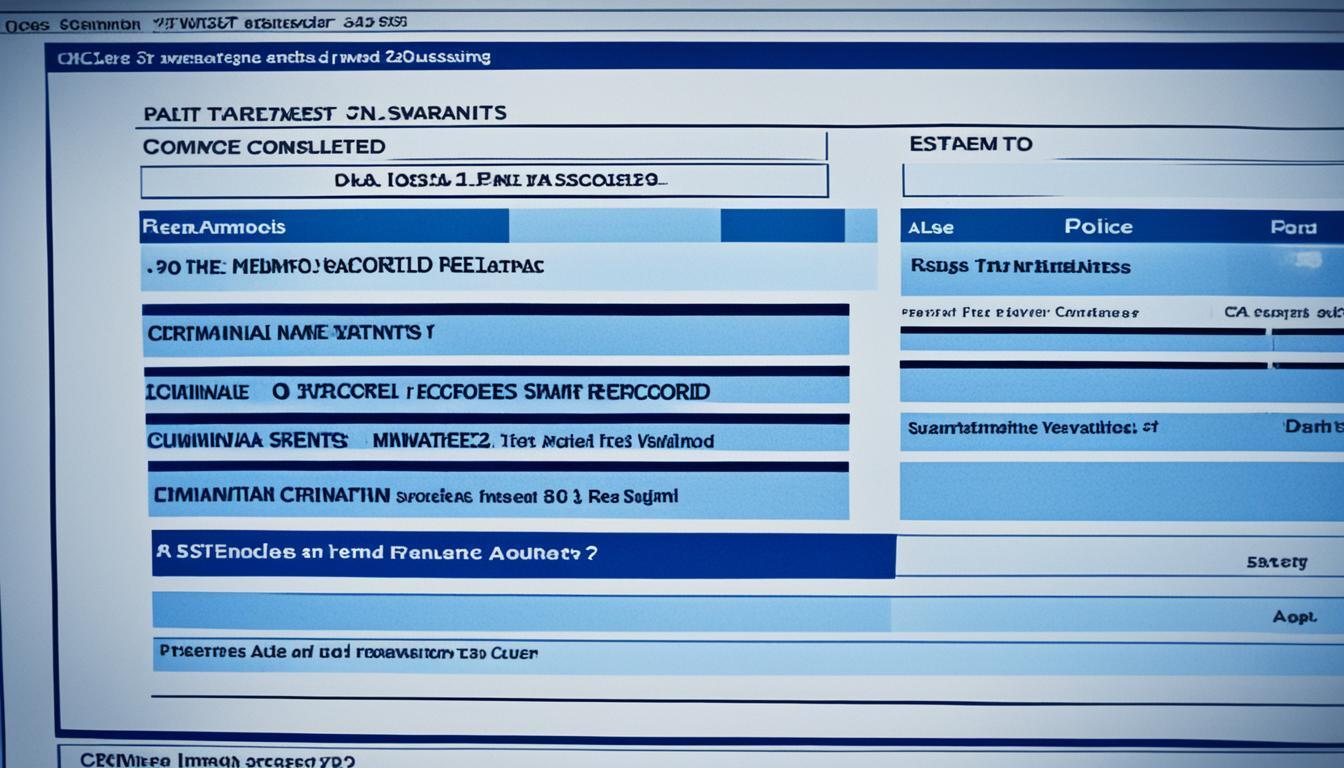Police Checks: What Data Is Revealed By Your Name?
Did you know that during a police check, law enforcement agencies can access various data about you based solely on your name? Whether it’s a Police Criminal Record Check (PCRC), a Police Information Check (PIC), or a Police Vulnerable Sector Check (PVSC), the results can reveal crucial information about your criminal history and other relevant records.
Key Takeaways:
- Police checks provide extensive information based on your name.
- The data accessed depends on the type of check being conducted.
- Criminal convictions, pending court appearances, outstanding charges, and local police records may be disclosed.
- Specific information varies based on the purpose of the check and jurisdiction.
- Understanding police checks is essential for individuals and organizations involved in hiring or volunteer work.
How to Obtain a Police Information Check?
If you’re looking to obtain a Police Information Check in Canada, there are several convenient options available to you.
- Online Application: You can apply for a Police Information Check online through the designated platform provided by the Police Information Check Section. This allows you to complete the application process from the comfort of your own home, eliminating the need for in-person visits.
- In-Person Submission: If you prefer a more hands-on approach, you can visit the Police Information Check Section in person. They offer a convenient “Pay & Go” service, where you can make the payment and submit your application on the spot. Your certificate will then be sent to you by mail.
- Out of Town Submission: For individuals residing outside of the town or even the country, specific procedures need to be followed. These procedures can typically be found in the FAQ section of the Police Information Check Section website, ensuring that distance is not a barrier to obtaining your check.
With these options available, obtaining a Police Information Check has never been easier or more accessible. Choose the method that suits your needs best and ensure that you have the necessary documentation and information ready to complete the process seamlessly.

What Do the Results of a Police Information Check Mean?
When you undergo a Police Information Check, the results can lead to two possible outcomes: the issuance of a “No Information to Disclose Certificate” or an “Information to Disclose Certificate”. These certificates carry important implications for individuals seeking employment or volunteering positions that involve vulnerable persons. Let’s explore what each certificate signifies.
No Information to Disclose Certificate
If your Police Information Check reveals no criminal convictions, relevant provincial statute convictions, outstanding charges, or local police records indicating a pattern of behavior that may harm vulnerable individuals, you will receive a “No Information to Disclose Certificate”. This certificate is only shared with the organization requesting the check if you provide your consent.

Information to Disclose Certificate
Conversely, if your Police Information Check uncovers any criminal convictions, relevant provincial statute convictions, outstanding charges, or local police records that could pose a risk to vulnerable individuals, you will be issued an “Information to Disclose Certificate”. This certificate is strictly confidential and is released solely to you, the applicant. It is not shared with any third party.
The age and relevance of the disclosed information are important factors to consider when assessing an individual’s suitability for a position. It is crucial to remember that these certificates are meant to provide insight into an applicant’s background without unlawfully infringing upon their privacy.
What Information Is Disclosed in a Police Information Check?
In a Vulnerable Sector Police Information Check, various types of information are disclosed to ensure the safety and well-being of vulnerable individuals. The check includes:
- A comprehensive list of all criminal convictions obtained from the Canadian Police Information Centre (CPIC).
- Information about pending court appearances for both criminal and relevant provincial statute offences.
- Criminal convictions that may not be recorded on a criminal record.
- Relevant provincial statute convictions.
- Any court-imposed orders.
Furthermore, the check also reveals locally held police records that indicate patterns of behavior that could potentially pose a risk to vulnerable individuals. These records are non-conviction records and may provide valuable insights into an individual’s history and potential risk factors.
It is important to note that mental health-related occurrences are not typically disclosed in a police information check, unless they involve violence or a threat of violence to persons other than the individual themselves. This ensures a balance between privacy rights and the need to protect vulnerable populations.
In cases where a Vulnerable Sector check is not required, a standard Police Information Check will still include criminal convictions from CPIC and pending court appearances for criminal and relevant provincial statute offences.
Understanding Vulnerable Sector Checks
A Vulnerable Sector Check is a crucial step in ensuring the safety and well-being of vulnerable populations, including children, the elderly, and individuals with disabilities. This specialized check is conducted when an individual is in a position of trust or authority over vulnerable persons, where their actions and behaviors can significantly impact those under their care.
During a Vulnerable Sector Check, the police verify the existence of any sex offenses for which a record suspension or pardon has been granted to the applicant. Additionally, they conduct a thorough search of local police records to identify any patterns of behavior that could potentially harm vulnerable individuals.
It’s important to note that Vulnerable Sector Checks can only be conducted by police services and are limited to specific geographical jurisdictions. The decision to require a Vulnerable Sector Check lies with the hiring organization or volunteer organization, who carefully consider the nature of the position and the level of authority or responsibility it entails over vulnerable persons. This ensures that individuals with a history of offenses or concerning behavior are not placed in positions where they could pose a risk to vulnerable populations.
- Quebec Police Officer Salary Insights 2023 - July 13, 2025
- Canada Arrest Protocol: What Police Say Upon Arrest - June 12, 2025
- Can Police Disclose Who Reported You? Find Out Here - June 6, 2025




















Post Comment